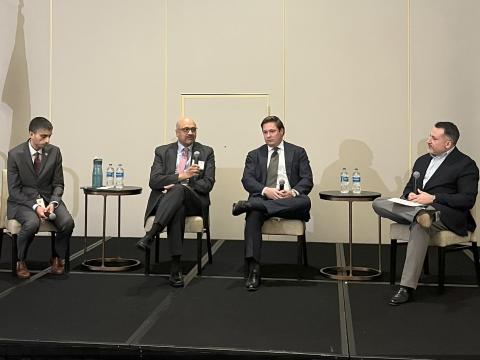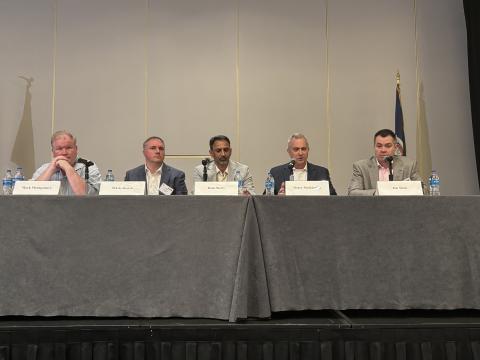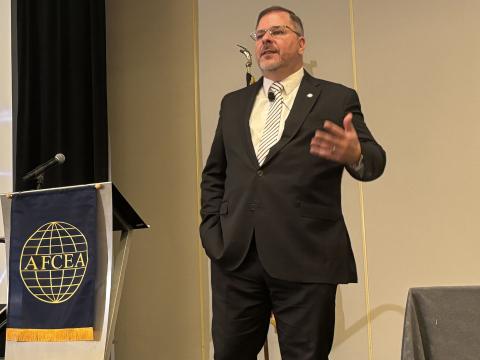Speculation on Spectrum
Be honest. When was the last time you thought about the frequency spectrum? For most of you, the answer is probably, “not lately.” We take spectrum for granted. As with water and air, we figure there always will be spectrum when we need it. Just as we have found in recent years that there isn’t always enough clean water and air, we are starting to realize there may not be enough spectrum to meet all requirements.
Years ago, as an Army Signal officer, I often said we didn’t need to worry about the enemy jamming our radios—we did a great job of stepping on each other without the help of the enemy. We all shared a limited set of frequencies, but often we didn’t coordinate their use very well. This problem is worse now. The number of competitors for the same frequencies is increasing over time.
The out-of-control growth of smart phones and other bandwidth-hogging wireless devices is staggering. In addition, technology is evolving to allow each device to consume more bandwidth. Governments are relinquishing more of the spectrum to commercial carriers every year. At the same time, government usage increases as a result of the same increased demand and technology changes. It is getting very crowded out there, and we have to do something about it.
This is an issue that applies to every part of government and to the private sector. In the
For all of our members, this is not just a national challenge. Every country faces this problem internally, but the problem extends beyond national boundaries. Spectrum scarcity is an international problem. Commercial communications carriers have become global; the commercial transportation community is consuming more bandwidth; consumers are traveling more each year with mobile devices in hand; and the increasingly global responses to crisis relief and asymmetric warfare are compelling governments to carry wireless demand across their borders.
So, what can we do? Regardless of our role, we can help in a variety of ways. First, we can help mature the standards for use of the frequency spectrum so that we have greater interoperability and more efficient use of available spectrum. National and international standards bodies need to work with both governments and industry to mature these standards and get agreement for implementation.
In that same dimension, we can help develop and apply new waveforms that are more efficient and promote adaptive use of bandwidth. Where possible, conversion from analog to digital technologies will help tremendously. We also need to resolve international differences that often prevent the most effective use of the spectrum or delay the use of wireless assets until individual approvals are obtained.
Finally, industry can work with government to figure out how to apply the newest mobile technologies within government network environments. In the
Many resources are vital for our information-age society to flourish—oil, water and electricity, for example. Spectrum also is a vital resource for our connected world, but unlike the others, its scarcity cannot be mitigated by increased exploration or conversion. Its finite nature is dictated by the laws of physics. The only solution to the challenge of spectrum demand outstripping supply is to ensure more efficient exploitation of this scarce resource, and it is up to those of us in the community to bring about this change.
Thanks for all that you are doing already and what I know you will continue to do for global security.




Comments